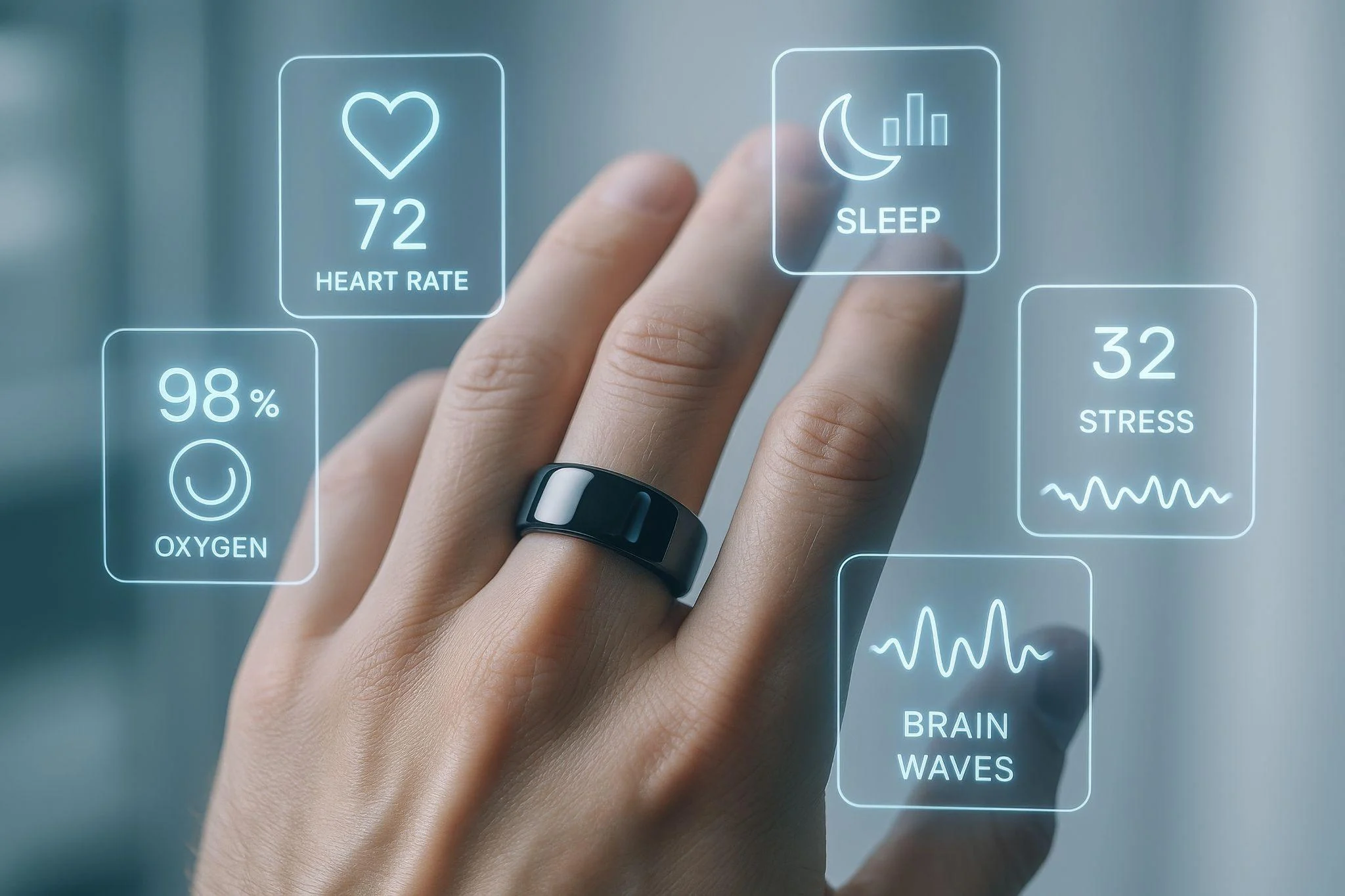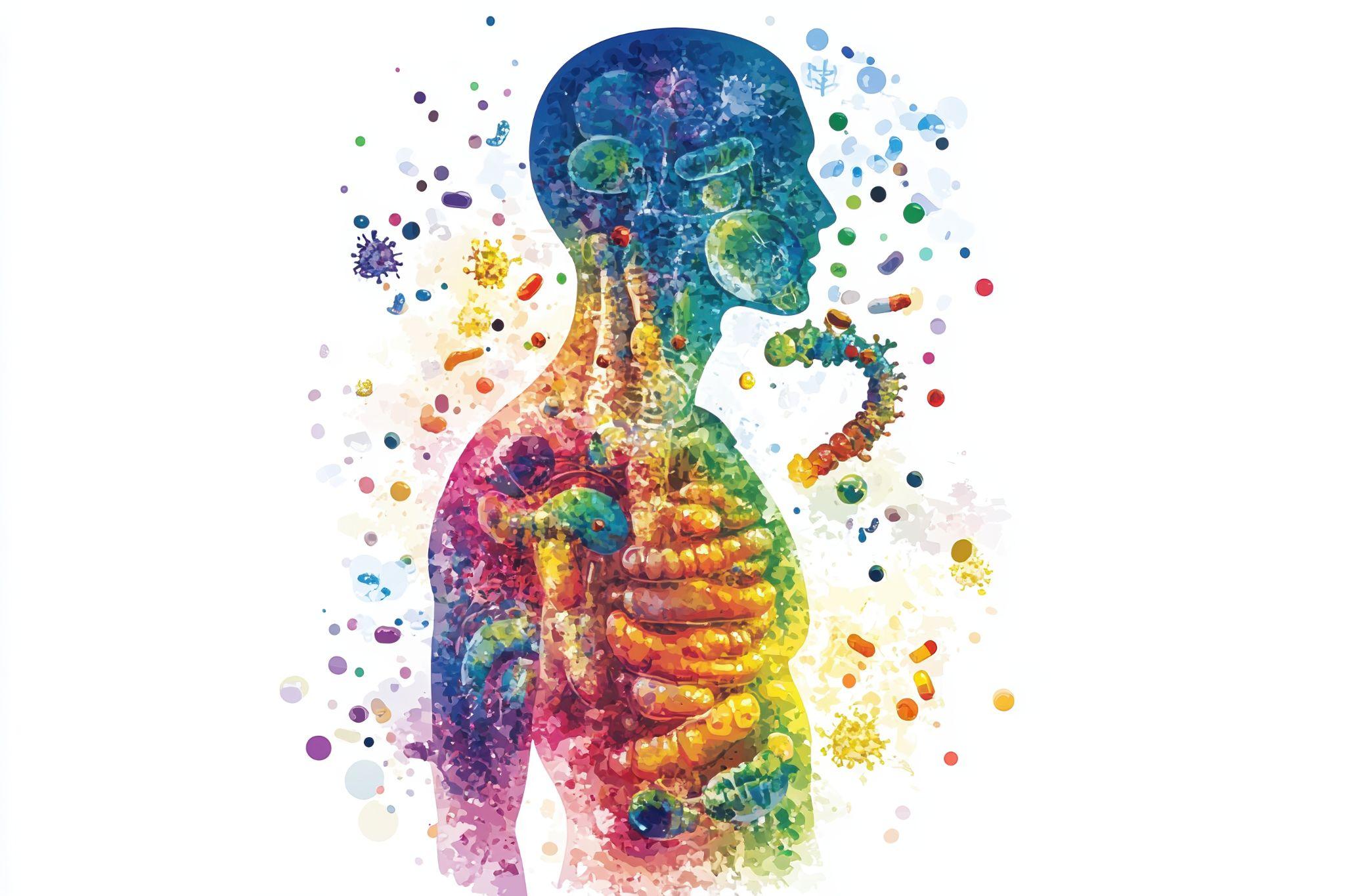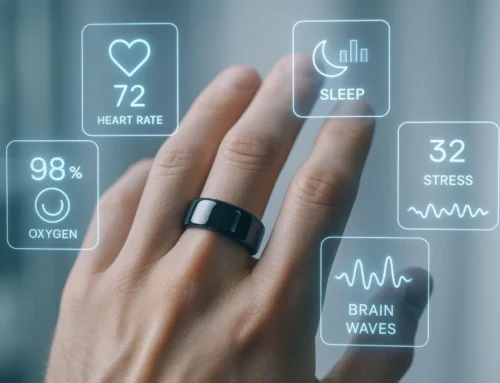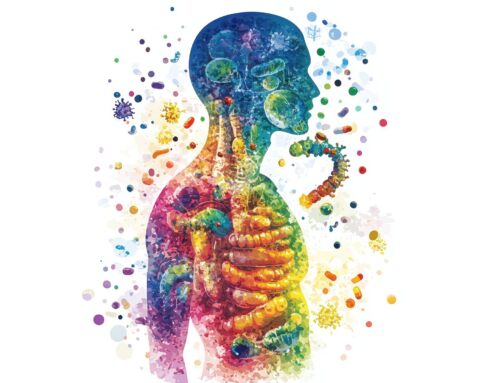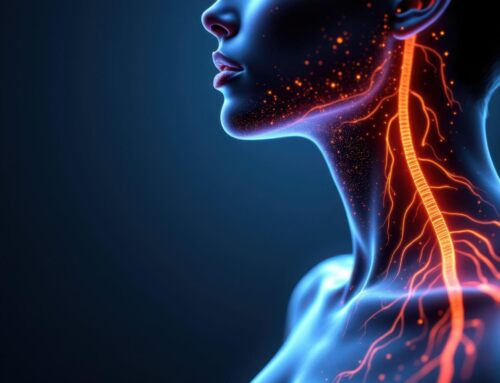From Inevitable to Modifiable: Leveraging Biomarkers for Personalized Strategies to Optimize Health and Reduce Disease Susceptibility
Ongoing advances in systems biology, neuropsychiatry, and precision medicine have reframed aging and disease susceptibility as dynamic, modifiable processes rather than inevitable outcomes. Core biomarkers—including DNA methylation, histone modifications, telomere attrition, inflammatory signaling, immune-cell distribution, cellular replication, metabolic parameters, and epigenetic or phenotypic aging rate—can be favorably influenced through nutrition, exercise, sleep, circadian alignment, stress modulation, and pharmacologic support (1-2).
Understanding the Molecular Hallmarks of Aging
Emerging evidence indicates that these molecular biomarkers can not only predict disease risk but also be actively modulated through nutrition, lifestyle, and pharmacologic interventions. Multidomain strategies encompassing dietary optimization, physical activity, sleep regulation, mind-body practices, and targeted pharmacology have been shown to improve cellular repair, immune competence, oxidative balance, and epigenetic stability (3).
For example, polyphenol-rich dietary protocols and restorative sleep have been linked to slower epigenetic aging and enhanced immune function, whereas exercise and mindfulness practices confer measurable benefits for telomere integrity and regulation of stress-response genes.
Predictive biomarkers of aging are rapidly evolving. Levine et al. (2018) introduced DNAm PhenoAge, an epigenetic clock integrating clinical biomarkers that more accurately predicts lifespan, healthspan, and disease risk than prior models (4). Its acceleration reflects increased inflammatory and interferon signaling and reduced transcriptional, repair, and mitochondrial activity—core signatures of biological aging.
DNA Methylation & Histone Modifications
Epigenetic markers, including DNA methylation and histone acetylation, provide a molecular framework for biological aging, stress response, and disease susceptibility. The epigenetic clock, derived from genome-wide methylation at key CpG sites, strongly correlates with morbidity, mortality, and cognitive decline (1). Environmental stressors—poor sleep, chronic psychological stress, pro-inflammatory diets with minimal nutrition, and circadian rhythm disruption—can accelerate epigenetic aging, whereas targeted lifestyle interventions can slow, or even reverse DNA methylation age (3).
Mechanistically, nutrient metabolites—including glucose, amino acids, fatty acids, and micronutrients such as B vitamins and essential minerals—act as cofactors or metabolic precursors for DNA methyltransferases and histone acetyltransferases, modulating gene expression involved in inflammation, cellular repair, mitochondrial function, and metabolic homeostasis. Diets rich in polyphenols, omega-3 fatty acids, quality proteins, and these micronutrients have been shown to enhance DNA repair gene expression, modulate pro-inflammatory pathways, and support neuronal plasticity (3–8).
Pharmacologic strategies, particularly metformin, synergize with lifestyle interventions by activating AMPK, reducing oxidative stress, improving mitochondrial efficiency, and modulating DNA methylation and inflammatory signaling—illustrating how diet, behavior, and targeted therapies can support the epigenome and cellular resilience (2).
Telomere Integrity & Cellular Replication
Telomeres (repetitive DNA sequences capping chromosomes) maintain genomic stability and regulate cellular replicative capacity. Progressive telomere shortening drives cellular senescence, amplifies chronic inflammation, and increases susceptibility to cardiovascular, metabolic, and neurodegenerative disorders (9).
Dietary patterns rich in antioxidants, polyphenols, and branched-chain amino acids mitigate oxidative stress, enhance telomerase activity, stabilize chromosomal ends, and suppress the senescence-associated secretory phenotype (SASP), a central mediator of tissue inflammation and age-related dysfunction (5). Regular physical activity, including aerobic and resistance training with appropriate rest periods, promotes telomerase expression, slows replication-induced shortening, and improves mitochondrial quality and autophagy, collectively strengthening cellular resilience (10). An anti-inflammatory, nutrient-dense diet coupled with intermittent fasting (IF) further support DNA repair, optimize mitochondrial function, enhance metabolic flexibility, and reduce replicative stress, supporting systemic balance and rejuvenation.
Nutrient Density & Cellular Health
Nutrition exerts profound control over cellular pathways of biological aging and susceptibility to disease. Nutrient-derived metabolites act as epigenetic and metabolic signaling molecules regulating immune-cell metabolism, energy pathways, and DNA repair mechanisms (6). Anti-inflammatory, polyphenol-rich diets stabilize DNA methylation, reduce telomere attrition, and attenuate circulating inflammatory markers, including IL-6 and CRP (5). Furthermore, nutrient density provides support and balance to the gut microbiome, which is a key regulator of epigenetics and, therefore, favorable gene expression.
Clinical studies demonstrate that polyphenol supplementation improves NK cell diversity, T-cell function, mitochondrial biogenesis, and oxidative stress resilience, linking diet quality directly to measurable biomarkers of immune and metabolic health (7). Bioactive compounds, such as EGCG, curcumin, and anthocyanins, modulate histone acetylation, promote neuroprotective pathways, and reduce oxidative damage and inflammation, resulting in downstream benefits for cognition, mood regulation, and cellular longevity (8).
Inflammatory Signaling & Immune-Cell Modulation
Chronic low-grade inflammation accelerates biological aging and predicts age-related disease. Immune-cell subset distributions—including T cells, B cells, NK cells, and myeloid populations—offer nuanced insight into immune competence and senescence (10). Poor sleep, chronic stress, and pro-inflammatory diets skew these populations toward senescent or pro-inflammatory phenotypes, increasing susceptibility to infection, autoimmunity, and malignancy.
Micronutrients, such as vitamins A, C, D, E, B-complex, zinc, selenium, iron, and magnesium, support immune balance, cytokine regulation, and gut barrier integrity. Diet-induced modulation of the gut microbiota further shapes immune homeostasis via microbial metabolites, including short-chain fatty acids, which interact with immune cells and influence gene expression (12). Anti-inflammatory dietary patterns, including Mediterranean and plant-based diets, modulate inflammatory signaling, improve DNA methylation, and support telomere maintenance, demonstrating the interplay between nutrition, immunity, and cellular health (3-5).
Perlmutter et al. (2024) demonstrated that a polyphenol-rich concentrate derived from Tartary buckwheat improved epigenetic and immune biomarkers in healthy adults. In this 90-day pilot trial of 50 participants (40% male, 60% female, ages 18–85), the intervention produced measurable improvements across multiple epigenetic age clocks and immune-cell function markers. Participants showed broad changes in gene expression affecting pathways related to longevity, inflammation control, and immune resilience.
Epigenetic clock analyses and immune-cell profiling both confirmed improved immunometabolic flexibility, indicating that the intervention enhanced the body’s ability to balance immune function and metabolic health (7).
Sleep, Circadian Rhythm, & Epigenetic Aging
From a systems medicine perspective, circadian alignment and sleep homeostasis serve as primary synchronizers of metabolic, endocrine, and epigenetic networks that regulate health. DNA methylation exhibits diurnal rhythmicity, and chronic sleep disruption hypomethylates genes governing inflammation, immune response, and cellular senescence.
Research demonstrates that regular, restorative sleep, with consistent timing, is associated with slower epigenetic aging, enhanced metabolic flexibility, and improved telomere maintenance. In contrast, poor sleep compromises metabolic health, as noted in a 2024 study published in Clinical Epigenetics (13).
Circadian misalignment, including shift work, exacerbates metabolic dysfunction, increases hypertension risk, and accelerates cognitive decline. Tang et al. (2025) identified circadian DNA methylation rhythms in human blood linked to gene expression and neuropsychiatric disease risk, highlighting the connection between circadian regulation, epigenetics, and health (14).
Interventions emphasizing chrononutrition, morning light exposure, and consistent sleep-wake timing can realign circadian rhythms and restore metabolic-epigenetic balance, supporting cellular and immune resilience (14–16).
Mind–Body Interventions & the Neuroimmune Dialogue
Psychological stress accelerates cellular aging through HPA-axis dysregulation, elevated cortisol, chronic inflammation, and telomere shortening. Mind-body interventions—including mindfulness, meditation, yoga, guided imagery, and biofeedback—mitigate these effects via epigenetic modulation of stress-response genes, enhanced parasympathetic activity, and improved neuroimmune communication (3). Long-term meditation, for example, reduces methylation of NR3C1, enhancing glucocorticoid receptor sensitivity and HPA-axis regulation, and increases FOXP3 expression, supporting regulatory T-cell function and immune homeostasis. These changes translate into measurable improvements in immune function, telomere stability, and inflammatory signaling.
Noroozi et al. (2024) demonstrated that lifestyle factors, including yoga, quality sleep, a plant-based diet, coffee consumption, and higher education, are associated with slower epigenetic aging and variants in SOCS2, a gene implicated in longevity (17). By modulating DNA methylation and other epigenetic markers, these behaviors influence the molecular pace of aging, underscoring how lifestyle can influence health. Yoga, notably, may be a way to naturally increase mindfulness, body-mind attunement, and help to channel stress out of the body.
Nature exposure similarly enhances parasympathetic dominance, lowers IL-6 and CRP, and supports NK and T-cell diversity, illustrating how psychological restoration is directly connected to molecular and immune resilience. Forest therapy, by enhancing parasympathetic dominance and lowering systemic inflammation, offers a low-cost adjunct for promoting psychoneuroimmunological resilience.
Movement
Exercise triggers molecular adaptations supporting cellular repair, neuroplasticity, and immune competence. Physical activity activates AMPK and PGC-1α, enhancing mitochondrial biogenesis, oxidative metabolism, and telomerase activity. Aerobic and resistance training reduce inflammatory cytokines, optimize immune-cell distributions, promote neurogenesis, and preserve white-matter integrity (18). Exercise further modulates BDNF, NMDA receptor signaling, and epigenetic modifications in neural, muscular, and immune tissues, creating a feedback loop that reinforces molecular repair and cognitive resilience (18-22). Appropriate movement with sufficient recovery, proper nutrition, and restorative sleep promotes favorable genetic expression and long-term adaptive capacity (3).
Pharmacologic Interventions
Pharmacologic agents complement lifestyle strategies in modulating molecular biomarkers. Metformin activates AMPK, improves mitochondrial function, and modulates DNA methylation and inflammatory signaling (2). Senolytics, NAD⁺ precursors, and mTOR modulators illustrate a hormetic framework—targeting adaptive stress pathways to enhance cellular renewal. When integrated with multidomain lifestyle interventions, pharmacologic therapies synergistically reinforce cellular repair, telomere maintenance, and epigenetic stability, forming a comprehensive framework for molecular rejuvenation.
Translating Biomarker Insights into Personalized Strategies
Comprehensive biomarker profiling—including DNA methylation, telomere length, inflammatory signatures, immune-cell subsets, cellular replication dynamics, and biological aging pace—provides a multidimensional view of individual health trajectories. These data enable the design of targeted, evidence-based interventions that address molecular drivers of dysfunction rather than symptoms alone. Even modest improvements in nutrition, physical activity, sleep, and stress regulation have been shown to produce measurable shifts in key biomarkers (5).
Advanced single-cell and mass cytometry analyses demonstrate that targeted interventions can enhance CD8⁺ T-cell cytotoxicity, NK cell activity, regulatory T-cell balance, and mitochondrial efficiency, collectively reducing inflammatory burden and strengthening immune resilience (11). Integrating biomarker profiling with AI-driven analytics enables functional medicine practitioners to personalize interventions, monitor molecular adaptation, and iteratively adjust protocols in real time. This data-driven, feedback-oriented model marks a paradigm shift from disease management to proactive health optimization.
The Rise of Regenerative Precision Medicine
Advances in biomarker science and data-driven therapeutics are redefining preventive and regenerative health, enabling individualized strategies guided by real-time molecular feedback rather than retrospective disease markers.
Once viewed as static indicators of cellular decline, biomarkers such as DNA methylation, telomere dynamics, inflammatory signaling, and immune-cell composition are now recognized as dynamic measures of physiological adaptation (1). This shift—from passive observation to active modulation—highlights our growing ability to influence aging biology through upstream, systems-based interventions that restore cellular homeostasis and optimize longevity.
Revolutionizing Patient Care: AI and Epigenetics at the Forefront of Precision Medicine
Join experts Jeffery Bland, PhD, Ryan Smith, and Matthew Dawson, MD, on November 11th, 5–7 pm PST, for a live webinar exploring how AI-driven biomarker analysis and epigenetic science are transforming patient care.
Discover how molecular biomarkers can guide personalized interventions to enhance healthspan and resilience, and explore practical strategies for integrating biomarker-guided approaches into clinical practice.
References
- Horvath, S., & Raj, K. (2018). DNA methylation-based biomarkers and the epigenetic clock theory of aging. Nature Reviews Genetics, 19(6), 371–384.
- Barzilai N, Crandall JP, Kritchevsky SB, Espeland MA. Metformin as a Tool to Target Aging. Cell Metab. 2016 Jun 14;23(6):1060-1065. doi: 10.1016/j.cmet.2016.05.011. PMID: 27304507; PMCID: PMC5943638.
- Ramos-Lopez O. Epigenetic Biomarkers of Metabolic Responses to Lifestyle Interventions. Nutrients. 2023 Oct 3;15(19):4251. doi: 10.3390/nu15194251. PMID: 37836535; PMCID: PMC10574040.
- Levine ME, Lu AT, Quach A, Chen BH, Assimes TL, Bandinelli S, Hou L, Baccarelli AA, Stewart JD, Li Y, Whitsel EA, Wilson JG, Reiner AP, Aviv A, Lohman K, Liu Y, Ferrucci L, Horvath S. An epigenetic biomarker of aging for lifespan and healthspan. Aging (Albany NY). 2018 Apr 18;10(4):573-591. doi: 10.18632/aging.101414. PMID: 29676998; PMCID: PMC5940111.
- Siopis G, Porter J. Contribution of Biological Age-Predictive Biomarkers to Nutrition Research: A Systematic Review of the Current Evidence and Implications for Future Research and Clinical Practice. Adv Nutr. 2022 Oct 2;13(5):1930-1946. doi: 10.1093/advances/nmac060. PMID: 35612976; PMCID: PMC9526820.
- Newsholme P. Cellular and metabolic mechanisms of nutrient actions in immune function. Nutr Diabetes. 2021 Jun 23;11(1):22. doi: 10.1038/s41387-021-00162-3. PMID: 34168118; PMCID: PMC8223523.
- Perlmutter A, Bland JS, Chandra A, Malani SS, Smith R, Mendez TL, Dwaraka VB. The impact of a polyphenol-rich supplement on epigenetic and cellular markers of immune age: a pilot clinical study. Front Nutr. 2024 Nov 18;11:1474597. doi: 10.3389/fnut.2024.1474597. PMID: 39628466; PMCID: PMC11612904.
- Farhan M, Faisal M. The Potential Role of Polyphenol Supplementation in Preventing and Managing Depression: A Review of Current Research. Life (Basel). 2024 Oct 21;14(10):1342. doi: 10.3390/life14101342. PMID: 39459643; PMCID: PMC11509552.
- Mylonas A, O’Loghlen A. Cellular Senescence and Ageing: Mechanisms and Interventions. Front Aging. 2022 Mar 29;3:866718. doi: 10.3389/fragi.2022.866718. PMID: 35821824; PMCID: PMC9261318.
- Ciolac EG, Rodrigues da Silva JM, Vieira RP. Physical Exercise as an Immunomodulator of Chronic Diseases in Aging. J Phys Act Health. 2020 May 11;17(6):662-672. doi: 10.1123/jpah.2019-0237. PMID: 32396868
- Liu X, Chen B, Huang Z, Duan R, Li H, Xie L, Wang R, Li Z, Gao Y, Zheng Y, Su W. Effects of poor sleep on the immune cell landscape as assessed by single-cell analysis. Commun Biol. 2021 Nov 25;4(1):1325. doi: 10.1038/s42003-021-02859-8. PMID: 34824394; PMCID: PMC8617259.
- Bacaloni S, Agrawal DK. Nutrition, Gut Microbiota, and Epigenetics in the Modulation of Immune Response and Metabolic Health. Cardiol Cardiovasc Med. 2025;9(3):111-124. Epub 2025 May 5. PMID: 40443829; PMCID: PMC12121961.
- Lee HS, Kim B, Park T. The association between sleep quality and accelerated epigenetic aging with metabolic syndrome in Korean adults. Clin Epigenetics. 2024 Jul 16;16(1):92. doi: 10.1186/s13148-024-01706-x. PMID: 39014432; PMCID: PMC11253334.
- Tang H, Chen S, Yi L, Xu S, Yang H, Li Z, He Y, Liao Y, Chen X, Liu C, Gu L, Yuan N, Chen C, Tang J. Circadian Rhythms Correlated in DNA Methylation and Gene Expression Identified in Human Blood and Implicated in Psychiatric Disorders. Am J Med Genet B Neuropsychiatr Genet. 2025 Jan;198(1):e33005. doi: 10.1002/ajmg.b.33005. Epub 2024 Sep 25. PMID: 39319595.
- Ravi N, Gaur A, Varatharajan S, Earl EH, Kalpana M, Kamble P, Daulatabad V, Singhal A, Ganji V, Umesh M, Taranikanti M, John NA. Sleep and chrononutrition: a narrative review. Sleep Biol Rhythms. 2025 Aug 17;23(4):411-417. doi: 10.1007/s41105-025-00607-7. PMID: 40988908; PMCID: PMC12450850.
- Schrader LA, Ronnekleiv-Kelly SM, Hogenesch JB, Bradfield CA, Malecki KM. Circadian disruption, clock genes, and metabolic health. J Clin Invest. 2024 Jul 15;134(14):e170998. doi: 10.1172/JCI170998. PMID: 39007272; PMCID: PMC11245155.
- Noroozi R, Rudnicka J, Pisarek A, Wysocka B, Masny A, Boroń M, Migacz-Gruszka K, Pruszkowska-Przybylska P, Kobus M, Lisman D, Zielińska G, Iljin A, Wiktorska JA, Michalczyk M, Kaczka P, Krzysztofik M, Sitek A, Ossowski A, Spólnicka M, Branicki W, Pośpiech E. Analysis of epigenetic clocks links yoga, sleep, education, reduced meat intake, coffee, and a SOCS2 gene variant to slower epigenetic aging. Geroscience. 2024 Apr;46(2):2583-2604. doi: 10.1007/s11357-023-01029-4. Epub 2023 Dec 16. PMID: 38103096; PMCID: PMC10828238.
- Erickson KI, Voss MW, Prakash RS, Basak C, Szabo A, Chaddock L, Kim JS, Heo S, Alves H, White SM, Wojcicki TR, Mailey E, Vieira VJ, Martin SA, Pence BD, Woods JA, McAuley E, Kramer AF. Exercise training increases size of hippocampus and improves memory. Proc Natl Acad Sci U S A. 2011 Feb 15;108(7):3017-22. doi: 10.1073/pnas.1015950108. Epub 2011 Jan 31. PMID: 21282661; PMCID: PMC3041121.
- Cotman CW, Berchtold NC, Christie LA. Exercise builds brain health: key roles of growth factor cascades and inflammation. Trends Neurosci. 2007 Sep;30(9):464-72. doi: 10.1016/j.tins.2007.06.011. Epub 2007 Aug 31. Erratum in: Trends Neurosci. 2007 Oct;30(10):489. PMID: 17765329.
- Maass A, Düzel S, Goerke M, Becke A, Sobieray U, Neumann K, Lövden M, Lindenberger U, Bäckman L, Braun-Dullaeus R, Ahrens D, Heinze HJ, Müller NG, Düzel E. Vascular hippocampal plasticity after aerobic exercise in older adults. Mol Psychiatry. 2015 May;20(5):585-93. doi: 10.1038/mp.2014.114. Epub 2014 Oct 14. PMID: 25311366.
- Denham J. Exercise and epigenetic inheritance of disease risk. Acta Physiol (Oxf). 2018 Jan;222(1). doi: 10.1111/apha.12881. Epub 2017 Apr 19. PMID: 28371392.
- Simpson RJ, Lowder TW, Spielmann G, Bigley AB, LaVoy EC, Kunz H. Exercise and the aging immune system. Ageing Res Rev. 2012 Jul;11(3):404-20. doi: 10.1016/j.arr.2012.03.003. Epub 2012 Mar 21. PMID: 22465452.

